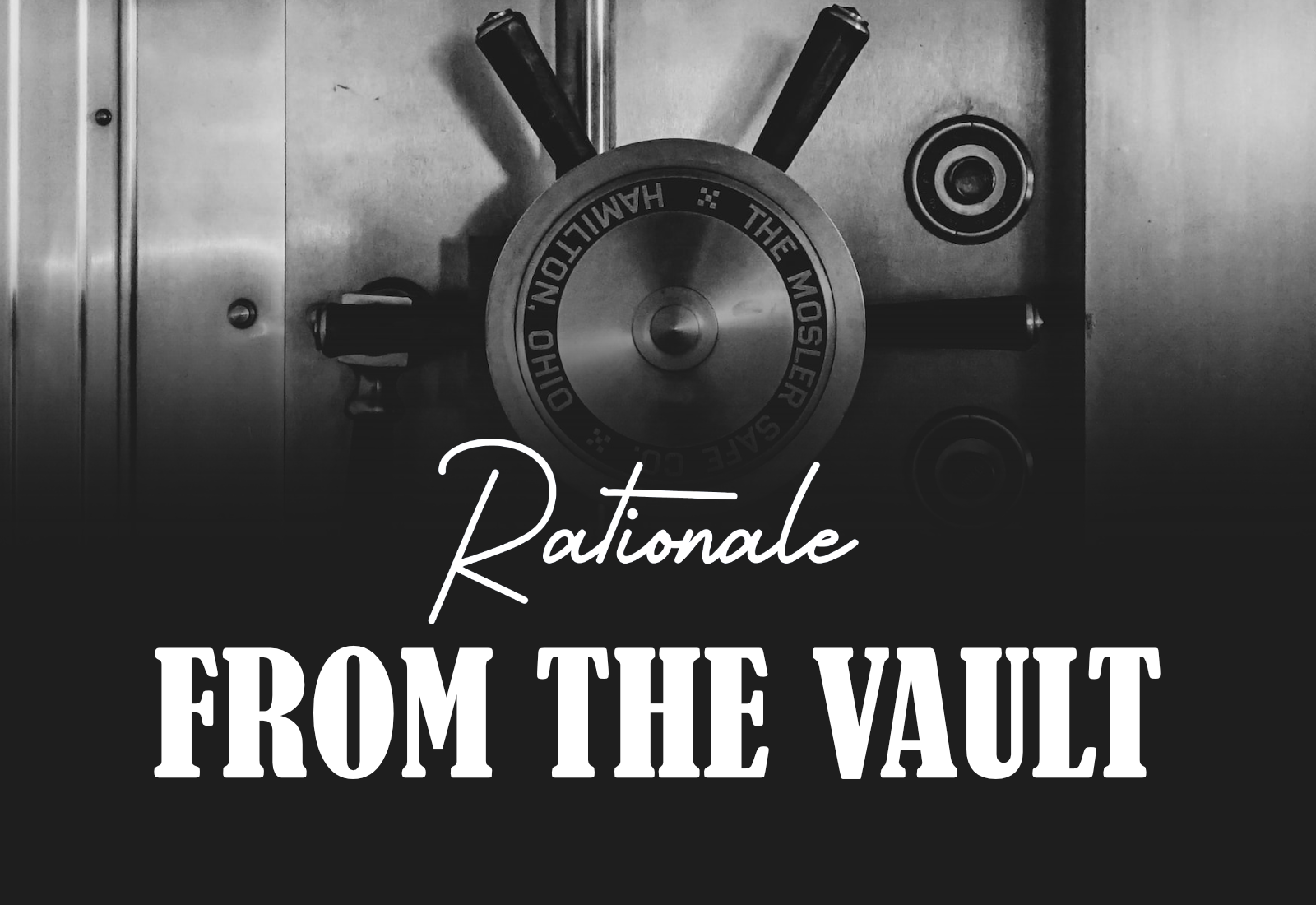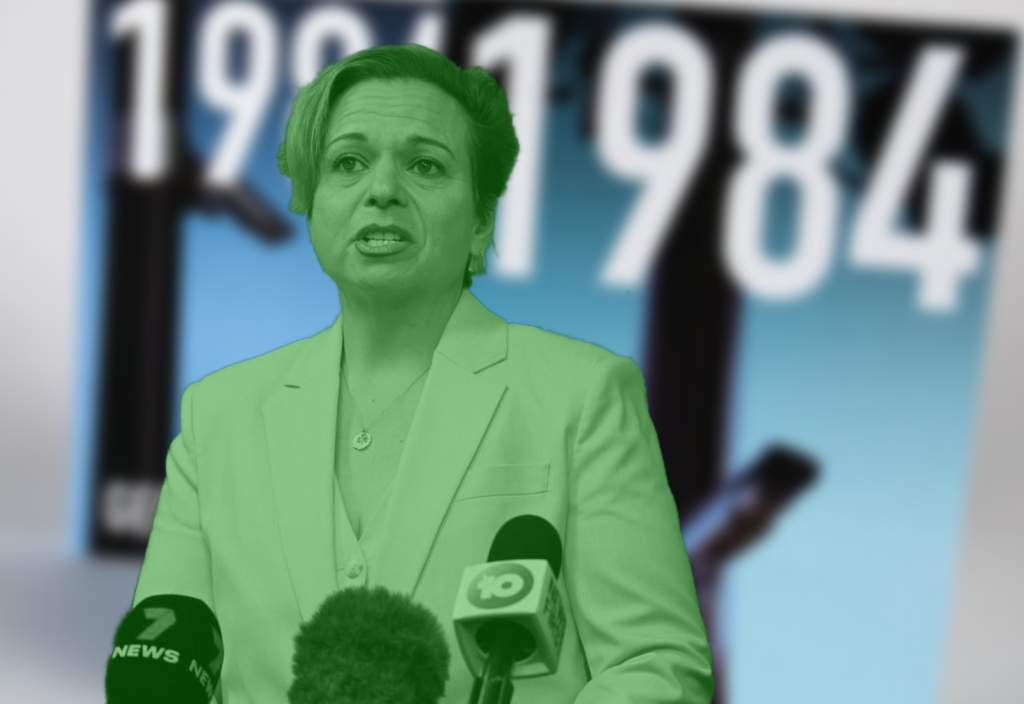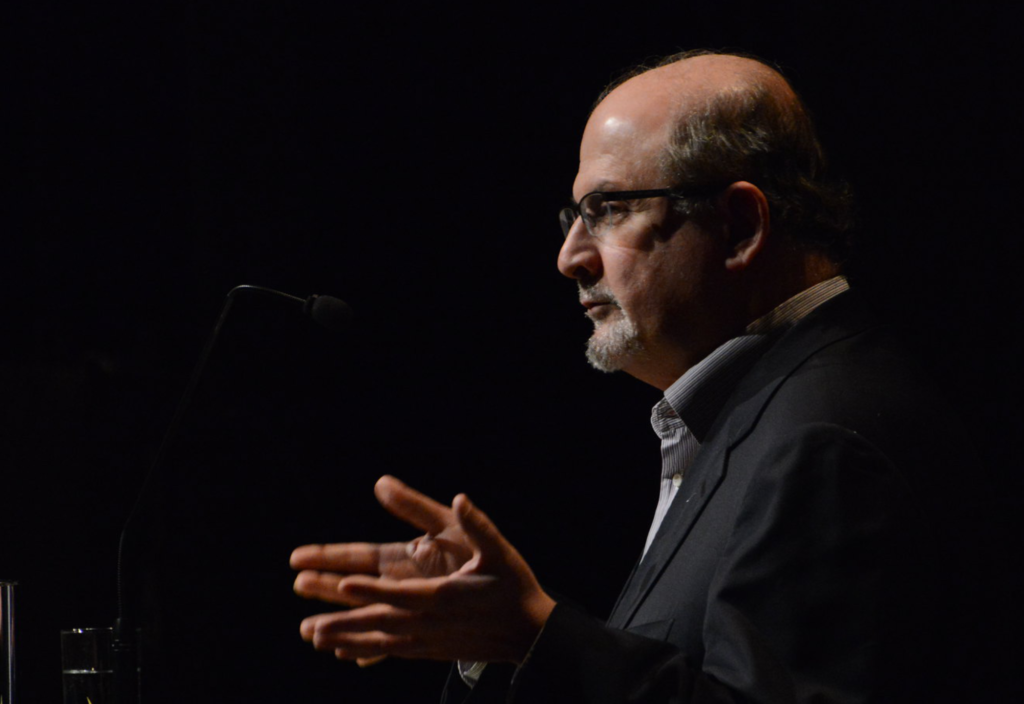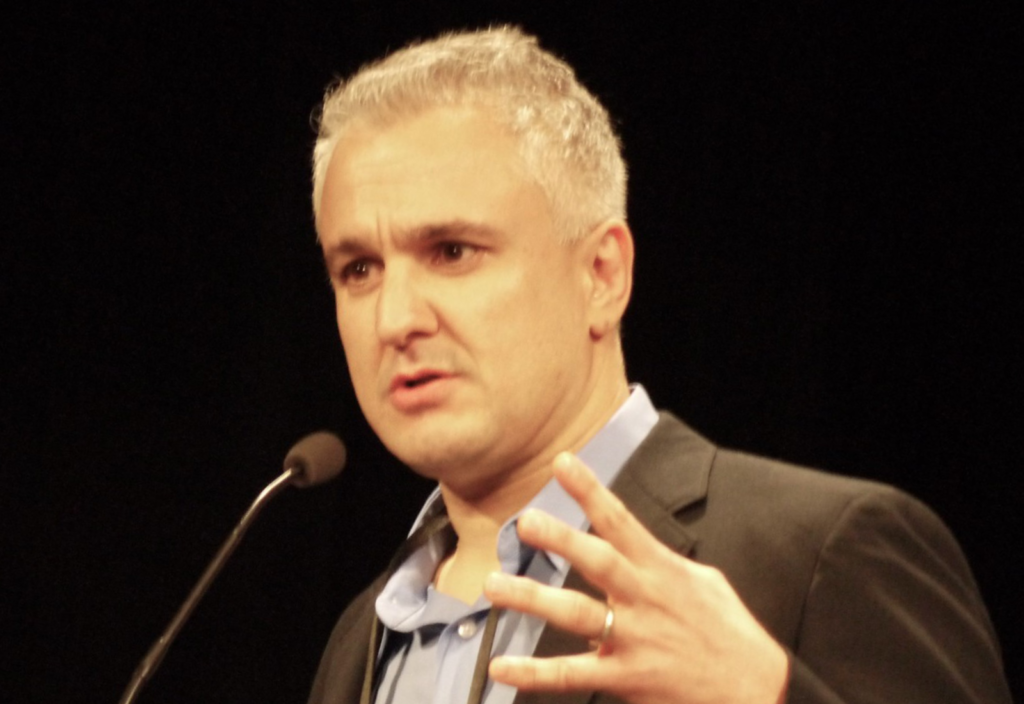This article is part of our ‘From the vault’ series of summer reading. It was originally published in the Autumn 2017 edition of Australian Rationalist.
What is freedom of speech? Most people agree that free speech is something we should uphold, but there is widespread and apparently increasing disagreement about the meaning and applicability of the concept.
I will not seek to provide a definitive answer to this complex question. Instead, I shall confine myself to an analysis of some of the key issues that are relevant to the debate, with a particular focus on highlighting certain concepts and distinctions, a proper understanding of which I think would greatly further the public discussion about this important topic.
Let us first consider the phrase ‘freedom of speech’. There are two important terms here that require discussion: ‘freedom’ and ‘speech’. In this context ‘speech’ is typically understood in quite a broad sense, incorporating a wide range of methods for conveying a message.
Speech is therefore not limited merely to verbal communication but includes distributing written texts, displaying photographs, producing motion pictures and even symbolic acts such as flag burning or holding a political rally.
Regarding ‘freedom’, in political philosophy a distinction is sometimes drawn between the freedom to achieve some end or undertake some action (‘freedom to’), and the freedom from being restricted or interfered with in some way (‘freedom from’).
While in some cases it can be unclear as to which type of freedom is meant, or even how exactly to distinguish between the two, in the case of freedom of speech it seems fairly clear that what is meant is ‘freedom from’ and not ‘freedom to’.
Nobody thinks that by ‘freedom of speech’ what is meant is that we should have the right or ability to achieve whatever goals we might have for our speech, or that others must listen to or agree with our speech.
There is no positive right for our speech to do anything or have any particular effect, so long as we are able to propagate our message in a manner such that people at least have the opportunity to hear it.
Thus, it seems clear that the usage of ‘freedom’ in the concept ‘freedom of speech’ should be understood primarily in the negative sense – of the freedom from being interfered with or restricted.
If to have freedom of speech is to be able to speak without some kind of restriction or interference, then what sort of restriction or interference would constitute a violation of this freedom?
Some people hold the view that any restriction or limitation on speech of any form constitutes a violation of freedom of speech; however, this absolute or ‘unlimited’ form of free speech is simply incoherent.
Asking people to speak only one at a time in a group discussion, and requiring those who violate this rule by interrupting or speaking over others to either cease talking or leave, does not in any meaningful sense constitute a restriction of ‘freedom of speech’, since allowing the interruption to continue would be to restrict the speech of the original speaker.
Unless we wish to say that the ultimate incarnation of free speech is everybody yelling at once and nobody able to listen, we must accept that at a minimum certain limitations and restrictions of speech are necessary in order to ensure that talks, discussions, and other forms of communication can occur in an orderly and intelligible manner.
Ejecting hecklers who are actively disrupting a talk or discussion, therefore, does not constitute suppression of free speech.
Harm and hate speech
When considering what sort of restriction would genuinely constitute a limitation to the exercise of free speech, we are faced with two main questions: what type of restrictions do we think are legitimate or appropriate, and what sorts of speech should they be applied to?
To consider the second question first, John Stuart Mill famously defended the harm principle, according to which the only justifiable reason for restricting freedom of speech is in order to prevent harm to others.
In this context, harm is usually understood to mean relatively direct harm, resulting in damage to person or property, or the clear violation of somebody’s rights. Thus, incitements to violence, threats, blackmail, libel, fraud, revealing state secrets, and blatantly false advertising would typically be regarded as examples where speech does clear and direct harm, and thus can justifiably be restricted under the harm principle.
There is, of course, disagreement as exactly how to understand the notion of ‘harm’, and how broadly or narrowly it should be construed. Certainly not any type of harm is sufficient – for instance, if my (non-libellous) speech causes a business to lose sales or a political candidate to lose votes, this does not constitute a reason for restricting my speech because the harm is not the result of any damage to life or property or infringement of rights.
The harm is not a direct consequence of my speech, but rather a by-product of other people’s reasonable and quite legal responses to the information or arguments I have provided them. Though the business or politician may be worse off, they have not been ‘harmed’ in the sense meant by Mills, and thus there is no case for restricting my speech.
Some have argued that the ‘no harm’ principle does not go far enough in identifying the range of cases in which restriction of freedom of speech is justified.
Hate speech is a particularly controversial example of a type of speech which many think should be restricted even if it does not cause harm in the narrow sense envisioned by Mill and his supporters.
Traditionally, defenders of free speech have argued that whether or not speech is offensive or even intimidating is highly subjective and indirect, and thus is not a sufficiently clear or direct form of harm to justify restricting free speech.
On the other hand, supporters of restricting hate speech typically contend that vilification or demonisation of particular groups of people is contradictory to the fundamental principles of a free, democratic society, under which the basic equality of all persons is a fundamental precept. As such, hate speech has no place in such societies and no legitimate basis for legal protection.
There is no positive right for our speech to do anything or have any particular effect, so long as we are able to propagate our message in a manner such that people at least have the opportunity to hear it.
Defenders of this view also argue that the marginalisation produced by hate speech can have profound social and psychological effects on those it targets, which while perhaps not being as direct or tangible as Mill would have liked nevertheless constitute very real and important forms of harm which should be included when determining what sorts of speech to restrict.
An example often cited is the obviously chilling effect and implied threats entailed by a planned neo-Nazi march through the predominantly Jewish neighbourhood of Skokie in 1977.
Speech that discriminates and denigrates, particularly with respect to minority groups, is thus not considered to be the sort of speech which warrants any particular protection.
A significant dispute concerning the extent of free speech concerns how much importance should be given to what may be called ‘psychological harm’, or forms of harm that are not tangible but may nevertheless be real in their negative effects.
In my view, one of the biggest problems with the dispute concerning the status of hate speech is that the concept is poorly defined.
Very rarely will anyone directly characterise their own position or speech (mere graffiti aside) as directing hatred towards others, and so using explicit appeals to hatred will not be particularly useful.
What to one person is hate speech directed against a vulnerable minority is to another person simply an expression of some viewpoint that other people find offensive or upsetting. As such, ‘hate speech’ cannot usually be identified simply by the use of blatant statements of animosity, but requires detailed analysis of the content of the speech in question.
Such analysis, however, seems to be impossible to perform in any objective way, and effectively seems to amount to making judgements as to how disagreeable or offensive the given speech was.
Use of the label ‘hate speech’ also fails to adequately consider other factors pertinent to the question of whether particular speech is acceptable or not, including the context in which it occurs, how easy it is to avoid the objectionable speech, and the social value of the speech.
An academic book making claims that some regard as hate speech, for example, is (at least potentially) more socially valuable and certainly easier to avoid in comparison to public posters displaying racial slurs.
While both of these instances of speech may arguably count as hate speech, it is not clear that the same restrictions would be appropriate in each case, and thus the use of the single label potentially obfuscates more than it clarifies.
Furthermore, many arguments in favour of restricting hate speech implicitly appeal to various strengthened forms of the harm principle, for example by considering psychological as well as physical harm.
As such, it may be more helpful to simply phrase the debate in terms of what sorts of harms are considered to be sufficient to warrant restriction of free speech, and contrast such harms with factors such as how easy the speech is to avoid and how plausible the speech is to have
some form of social benefit, thereby side-stepping the thorny issue of whether given speech is hateful. This would potentially help to clarify genuine points of disagreement and avoid confusion over ill-defined terms like ‘hate speech’.
Censorship v no-platforming
Another point of dispute concerning the freedom of speech relates to what forms of restrictions are appropriate and who should implement these restrictions.
In recent years, many universities and other public venues have been criticised for engaging in ‘no-platforming’ policies whereby particular people are banned or disinvited from delivering talks or participating in conferences, on the basis of remarks they have made which are deemed to be unacceptable or inappropriate.
Some observers have condemned this practice as a violation of freedom of speech, while others defend the practice on the basis that freedom of speech is only concerned with government restrictions on speech.
On the one hand, there is a clear difference between exercising of government censorship to prevent people from engaging in certain types of speech, and a private entity such as a company or university refusing to host someone espousing a particular point of view.
Newspapers, publishers, venues, and websites all have the right to utilise their property and influence as they wish, and it is unreasonable to require them to host points of view which they do not wish to provide a voice to, or find morally objectionable.
On the other hand, as Mill pointed out, the influence of social pressure and disapprobrium can sometimes be a very powerful means of shutting down legitimate discussion and suppressing or marginalising minority points of view.
Furthermore, an abstract right to freedom of speech does little good if one cannot find a venue to speak or printer to publish one’s ideas.
If we think that freedom of speech is, in general, something that is valuable, therefore it seems reasonable that we would regard both private and government restrictions on such freedom as at least potentially worthy of concern. It does not follow, of course, that we should have the same standards or criteria for determining the circumstances in which it is appropriate for each party to infringe on such freedoms.
We may, for instance, think it inappropriate for a university to refuse to host a speaker merely because they disagree with the stance of that speaker and find his views objectionable. However, if that same speaker has engaged in discriminatory and demeaning speech directed at certain minority groups, we may think it justified for the same university to refuse them a platform, even if we do not regard the harm done by this speech as sufficient or direct enough to warrant government restriction of that speech.
A final point to be raised is that merely because some type of speech should not be restricted by the government does not entail that such speech should be free from all negative consequences.
In particular, one may regard certain forms of speech as highly offensive, immoral, incorrect, or otherwise inappropriate, and may thus denounce them in the strongest possible manner, without advocating that such speech should be made illegal.
The key distinction here is between believing that people should legally be allowed to say something, and believing that they should say that thing. One may believe that someone should have the right to say something, even if one does not think it is right for them to say that thing.
This distinction tends to be missed in at least two distinct ways. On the one side, some people conflate allowing certain speech with endorsing the content of that speech, which is fallacious because merely refraining from making something legally punishable is not equivalent to endorsing that activity.
On the other side, some people seem to think that any strong criticism of particular speech, or any injunction that some things should not be said, is equivalent to advocating elimination of freedom of speech.
This is also fallacious, because believing that something should not be illegal does not mean that one cannot simultaneously denounce that thing as wrong and attempt to persuade people not to do it.
We widely recognise, for example, that lying is generally wrong even though (outside of certain contexts) it is not illegal to do so; nor would many people think it should in general be made illegal.
This distinction, between debates about what should be legal or illegal, on the one hand, and debates about what is right or wrong, on the other, must be properly understood if we are to make progress in debates surrounding freedom of speech.
Overall, it seems to me that the debate about freedom of speech will be assisted by greater clarity about the core concepts and the issues under dispute, such as the difference between morality and legality.
There needs to be a greater willingness to recognise the importance of nuance and to consider the various circumstances surrounding a particular act of speech.
Dogmatic assertion of the absolute right of free speech on the one side, and unclarified use of vague terms such as ‘hate speech’ on the other side, can be unhelpful in achieving a workable compromise regarding what types of speech should be restricted under which situations using which particular methods.
Photo by Jason Dent on Unsplash.














